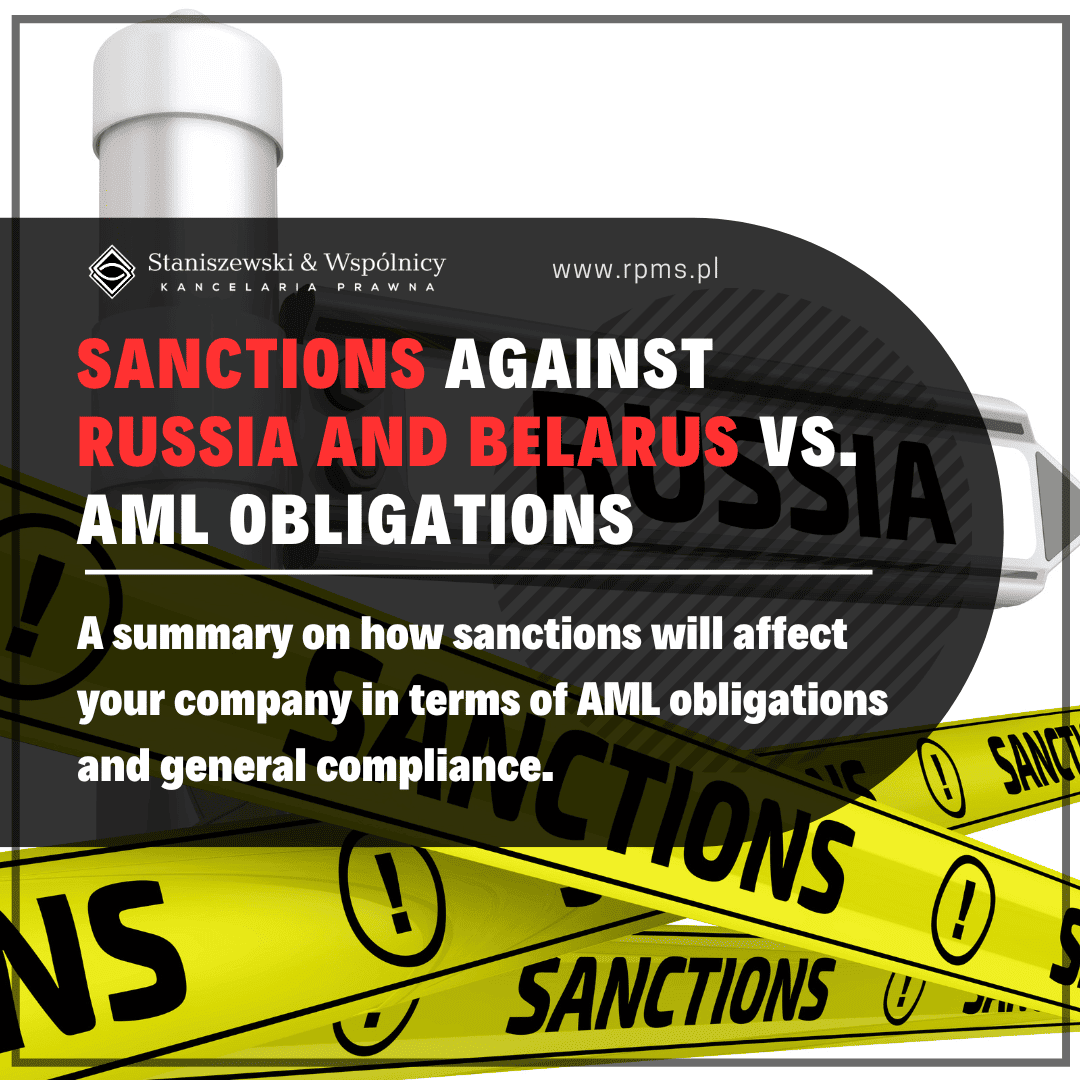Table of contents
Protection of Agricultural Land in Poland is reflected in specific regulations governing the acquisition of agricultural real estate. The decision to purchase agricultural land should be preceded by an analysis of the applicable restrictions and costs associated with the potential de-agriculturalization of the plot. Therefore, it is pertinent to ask: who in Poland can acquire agricultural real estate and what rules should be remembered?
Agricultural Real Estate: Definition

The starting point is to specify what ‘agricultural real estate’ means under the legal provisions. Although the most important regulations concerning the acquisition of agricultural real estate are found in the Agricultural System Shaping Act (referred to hereinafter as ‘UKUR’), with regards to the definition of agricultural real estate, UKUR refers to the provisions of the Polish Civil Code.
According to this legal act, agricultural real estate consists of properties (land) that are or can be used for agricultural production activities in the field of plant and animal production, including horticultural, fruit-growing, and fish farming activities. However, the Agricultural System Shaping Act specifies that properties that meet the requirements provided for in the Civil Code but are designated for purposes other than agricultural in the local spatial development plan (e.g., for production facilities, warehouses, and storage) are not considered agricultural real estate.
In the context of analyzing the definition provided in the Civil Code, it should be noted that agricultural activities do not necessarily have to be conducted on agricultural real estate. What is crucial is that the land’s designation indicates that agricultural activities could potentially be carried out on the land.
Who Can Acquire Agricultural Real Estate in Poland?
First and foremost, it should be noted that the regulations under UKUR’s regulations pertain to the acquisition of agricultural real estate with an area greater than 0.3 hectares. This means that agricultural real estate with an area of up to 0.3 hectares can be purchased by anyone without any restrictions or conditions as specified in UKUR.
In the case of acquiring real estate exceeding 0.3 hectares, UKUR establishes a general principle that only individual farmers can be the buyers of agricultural real estate. An individual farmer is defined as a natural person who is the owner, perpetual lessee, self-contained possessor, or tenant of agricultural real estate with a total agricultural land area not exceeding 300 hectares, possessing agricultural qualifications, and having resided in the municipality where one of the agricultural properties forming part of the agricultural holding is located for at least 5 years, and personally managing the farm during this period.
Several significant exceptions to the above rule are provided for (as discussed in a separate paragraph).
Agricultural real estate may also be acquired by entities that are not individual farmers, such as a sole proprietorship or a company. It is worth mentioning, however, that a non-farming entity, when intending to acquire agricultural real estate with an area of 1 hectare or more, must obtain the consent of the director of the National Support Center for Agriculture (KOWR) before entering into a sales agreement, bypassing the requirement related to farming status. Permission is granted in accordance with the procedures outlined in the Administrative Procedure Code (hereinafter as “KPA”).

Exceptions to the Acquisition of Agricultural Real Estate

Despite the general rule of acquisition by farmers, there are several exceptions. Consent for the acquisition of agricultural real estate by a non-farmer is not required, among other cases, when the agricultural land:
- Is acquired by a close relative of the seller (i.e., their spouse, descendants, ancestors, parents, siblings, children of siblings, siblings of parents, stepchildren, adopted or adoptive parents).
- Has an area of less than 1 hectare.
- Is acquired as a result of the division of joint ownership, inheritance partition, or the division of the common property of spouses.
- In cases of division, transformation, or merger of companies.
In these specified cases (and others detailed in Article 2a, section 3 of UKUR), the acquisition of agricultural real estate can be carried out in a much simpler manner without the need to go through the procedure of obtaining consent from the Director-General of KOWR.
Responsibilities of a Buyer of a Agricultural Real Estate in Poland
The mere acquisition of an agricultural real estate by a non-farmer, with an area up to 1 hectare, does not determine that the land can be used in any manner.
According to Article 2b, section 1 of UKUR, the buyer of agricultural real estate is obliged to operate a farm, including the acquired agricultural property, for a period of at least 5 years from the date of acquisition, and in the case of an individual, to personally manage the farm. Furthermore, during this period, the acquired property cannot be sold or transferred into the possession of other entities.
Only the Director-General of the National Support Center for Agriculture (KOWR), as indicated in section 3 of this article, upon the request of the buyer of agricultural real estate, can grant permission, through an administrative decision, for the sale of agricultural real estate or its transfer into the possession of other entities before the expiration of the 5-year period from the date of property transfer. This may occur in cases justified by the significant interest of the buyer of agricultural real estate or the public interest.

How to Obtain Approval for the Acquisition of Agricultural Real Estate?

To obtain approval for the acquisition of agricultural real estate exceeding 1 hectare for an entity that is not a farmer and is not subject to the exclusions directly specified in UKUR, an application must be submitted to the Director-General of the National Center for an administrative decision granting such approval.
The application should be in writing and include the following elements:
- Identification of the parties to the sale of agricultural real estate (seller and buyer).
- Identification of the agricultural real estate in accordance with the data in the land and building registry.
- Justification – the applicant, who is not a farmer, must state the purpose for which the agricultural real estate is being acquired and the anticipated manner of its use.
- Signature of the applicant (in the case of companies, the signature must comply with representation rules).
The application must also be accompanied by specific documents, including:
- Extract from the land and building registry for the relevant agricultural real estate.
- Extract from the land register or certificate issued based on the collection of documents maintained for the property being sold.
- Statement from the seller of agricultural real estate about the intention to sell it to the applicant.
- Statement from the seller of agricultural real estate – in the case of an application submitted by the seller about the impossibility of selling agricultural real estate to an individual farmer and the agreed upon price of sale of the agricultural real estate with the buyer.
- Certificate indicating the designated use of the specific property in the local spatial development plan.
Consequences of Violating Regulations
The process of obtaining approval for the acquisition of agricultural real estate may appear complex and significantly extend the overall procedure. What if a particular entity acquires agricultural real estate without the required consent from KOWR?
The consequences in this regard are quite significant. Any act of transferring agricultural real estate without the necessary consent is considered null and void. Such a legal act will have no legal consequences and is treated as if it never occurred (known as ‘ex tunc‘).
However, if the buyer of agricultural real estate, within the 5-year period specified in Article 2b, section 1 of UKUR, does not engage in or ceases to operate a farm, or in the case of an individual, personally managing the farm into which the acquired agricultural property is incorporated, transfers the acquired agricultural property into the possession of another entity without KOWR’s consent, KOWR may apply to the court for the acquisition of ownership of this property by the National Center acting on behalf of the State Treasury, at a price corresponding to its market value.

Right of First Refusal by KOWR

In the event of the sale of agricultural real estate, the tenant (subject to certain conditions), as well as the National Support Center for Agriculture (KOWR), have the right of first refusal for that property. This entitlement means that in situations specified in the law, KOWR has the right to step in and acquire the property on terms defined (including those agreed upon by the parties to the agreement) and at a price corresponding to the value of the agricultural real estate. The National Support Center for Agriculture can exercise the right of first refusal and purchase within one month from receiving a conditional sales agreement or appropriate notification.
The right of first refusal does not apply when the acquisition of agricultural real estate results in the enlargement of the family farm, provided it does not exceed an area of 300 hectares and the acquired agricultural real estate is located in the municipality where the buyer resides or in a municipality adjacent to that municipality.
Summary
Acquiring agricultural real estate is subject to certain limitations. However, this does not imply that agricultural properties can only be acquired by farmers. It is essential to keep in mind some exceptions to the consent requirement and the responsibilities of the buyer of agricultural real estate. With the assistance of a legal firm, the process of acquiring real estate by a non-farming entity can proceed smoothly.

Q&A
The procedure for obtaining consent for the acquisition of agricultural real estate by a non-farming entity is an administrative process governed by the provisions of KPA. According to this legal framework, the authority should promptly review the case, but no later than within one month (or within two months in particularly complex cases). However, this timeframe may be extended, and the authority should inform the applicant accordingly.
Yes, proceedings before KOWR are of an administrative nature. In such proceedings, it is possible to appoint a legal representative. It is advisable to appoint a legal representative in proceedings before KOWR to expedite the process.














